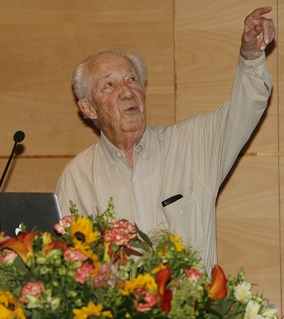A Quote by Victor Hugo
Let us admit, without bitterness, that the individual has his distinct interests and can, without felony, stipulate for those interests and defend them. The present has its pardonable amount of egotism; momentary life has its claims, and cannot be expected to sacrifice itself incessantly to the future. The generation which is in its turn passing over the earth is not forced to abridge its life for the sake of the generations, its equals after all, whose turn shall come later on.
Quote Topics
Related Quotes
The good of the family cannot be achieved without consideration of an individual's important interests. If those interests are urgent and weighty, they must become important interests of the family and can sometimes have priority in case of conflict. Sometimes, members must split their differences in compromise. Over time, yielding to others at some times must be balanced against getting priority for one's interests at other times.
All human life is sunk deep in untruth; the individual cannot pull it out of this well without growing profoundly annoyed with his entire past, without finding his present motives (like honor) senseless, and without opposing scorn and disdain to the passions that urge one on to the future and to the happiness in it.
Society ... is nothing more than the war of a thousand petty opposed interests, an eternal strife of all the vanities, which, turn in turn wounded and humiliated one by the other, intercross, come into collision, and on the morrow expiate the triumph of the eve in the bitterness of defeat. To live alone, to remain unjostled in this miserable struggle, where for a moment one draws the eyes of the spectators, to be crushed a moment later -- this is what is called being a nonentity, having no existence. Poor humanity!
We are the dead. Our only true life is in the future. We shall take part in it as handfuls of dust and splinters of bone. But how far away that future may be, there is no knowing. It might be a thousand years. At present nothing is possible except to extend the area of sanity little by little. We cannot act collectively. We can only spread our knowledge outwards from individual to individual, generation after generation. In the face of the Thought Police there is no other way.
The best moments on earth are those during which we meditate upon heavenly things in general, when we recognize or defend the truth, that heavenly dweller and denizen. Only then do we truly live. Therefore, the essential interests of the soul require that we should oftener rise above the earth, upwards to heaven, where is our true life, our true country, which shall have no end.
You cannot carry out fundamental change without a certain amount of madness. In this case, it comes from nonconformity, the courage to turn your back on the old formulas, the courage to invent the future. It took the madmen of yesterday for us to be able to act with extreme clarity today. I want to be one of those madmen. We must dare to invent the future.
[T]he most common and durable source of factions has been the various and unequal distribution of property. Those who hold and those who are without property have ever formed distinct interests in society. Those who are creditors, and those who are debtors, fall under a like discrimination. A landed interest, a manufacturing interest, a mercantile interest, a moneyed interest, with many lesser interests, grow up of necessity in civilized nations, and divide them into different classes, actuated by different sentiments and views.
God has lent us the earth for our life; it is a great entail. It belongs as much to those who are to come after us, and whose names are already written in the book of creation, as to us; and we have no right, by anything that we do or neglect, to involve them in unnecessary penalties, or deprive them of benefits which it was in our power to bequeath.
Each pursues his private interest and only his private interest; and thereby serves the private interests of all, the general interest, without willing it or knowing it. The real point is not that each individual's pursuit of his private interest promotes the totality of private interests, the general interest. One could just as well deduce from this abstract phrase that each individual reciprocally blocks the assertion of the others' interests, so that, instead of a general affirmation, this war of all against all produces a general negation.




































